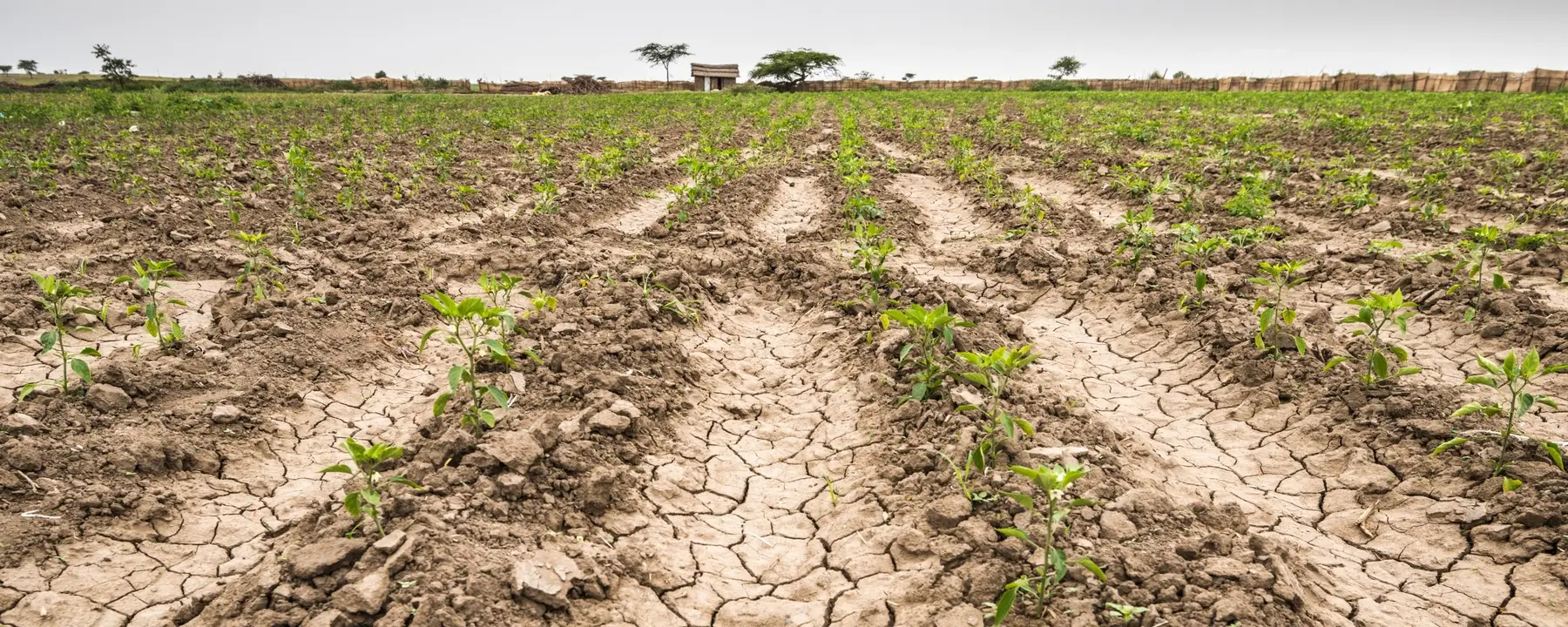Our free, publicly available database helps decision-makers support small-scale producers in climate-smart ways
Objective
To develop a database of freely accessible, broadly applicable, and interactive tools to help decision-makers at the nexus of climate and the food system support small-scale producers in climate-smart ways.
Approach
We reviewed hundreds of existing online tools, platforms, and databases that combine agricultural and climate data, which we identified through literature reviews, online searches, and consultations with experts. We only included interactive tools that were freely accessible to the public and could be applied to at least two middle- or low-income countries.
Impact
Our free and publicly available database, hosted through Airtable, contains 29 tools that can be used to derive insights on potential climate impacts, alternative approaches to climate-relevant goals, sustainable supply chains, and more.
Agriculture has long been a risky endeavor. Small-scale producers (SSPs) of agricultural products around the globe are routinely subjected to emergent pests and diseases, shifts in national regulations and global trade regimes, market price fluctuations, and other forces that fall outside their control. These compounding uncertainties can stifle SSPs’ ability to make long-term investments in their operations, build up buffers to shock, and generally gain momentum in their agricultural pursuits. Uncertainty due to climate change—weather variability, extreme weather events, changing temperature and rainfall patterns, etc.—further compounds SSP risk exposure.
Organizations seeking to serve SSPs—like those investing in or implementing programs to support them—have both an opportunity and a responsibility to ensure their work mitigates, rather than amplifies, the global impacts of climate change—thereby reducing uncertainties facing SSPs.
Interactive Tools for Climate-Smart Agriculture Decision-Making
Climate data can be highly technical and challenging to integrate into decision-making, but there are a growing number of interactive tools that combine agricultural and climate data to help decision-makers prioritize climate-smart endeavors. However, because agriculture is highly context-specific and tools have different goals, it can be challenging to identify which tools are best suited for their needs.
With support from the Bill & Melinda Gates Foundation, our team reviewed and analyzed over 200 tools identified from literature reviews, research organizations’ toolboxes and platforms, and consultations with experts. This effort yielded a database of the of the top 29 interactive, readily accessible* tools for informing decision-making at the intersection of climate and the food system, with a focus on small-scale producers.
These tools met the following criteria:
- Relevant to both climate and food systems
- Interactive tools (not a publication, framework, database, or other static resource)
- Freely available and accessible to all (requiring no more than creating a free account, and not requiring subject-specific expertise or access to geospatial or statistical data or software)
- Applicable to at least two low- or lower-middle-income countries
The tools primarily consider climate risk (including exposure, hazard, and vulnerability), climate adaptation, climate mitigation, or some combination of all three. They provide valuable insights that can be leveraged in various ways by a wide range of users. For example, users may employ the tools to broadly screen for potential climate-related impacts, assess alternative approaches for climate-relevant goals, or inform sustainability in agricultural supply chains. These tools should not be used in isolation of other data, research, and stakeholder consultation, but can be helpful in deriving insights that can be used to inform decision-making.
For the benefit of the broad community of stakeholders working to make better decisions at the climate-food system nexus, we have shared these 29 tools in the embedded database below. Users can use the filters to narrow down to a specific sub-set of tools and can also download the database as a CSV file for further analysis.
Ultimately, our database of accessible, interactive tools can help funders, implementing partners, sourcing managers, and policymakers make climate-smart, data-driven decisions that can help support small-scale farming in low- and middle-income countries.
Read the publication here.
- Bill and Melinda Gates Foundation
Learn more about RTI’s Center for Climate Solutions, RTI Innovation Advisors and RTI’s research in climate risk analysis, climate-smart agriculture, and resiliency planning.
*For the purpose of this database, we defined “readily accessible” to exclude any tool that requires more than a free sign-up and that RTI subjectively deemed as requiring too much expertise for most practitioners to use. This means we excluded tools like the Agriculture, Forestry and other Land Use (AFOLU) calculator which are only available to implementers of USAID projects. It also means we excluded multiple climate models and tools that required familiarity with geospatial or statistical data and software including ArcGIS or the General Algebraic Modeling System (GAMS).
Help Enhance the Tool
Leave a comment or submit a request to add a new tool to the database





